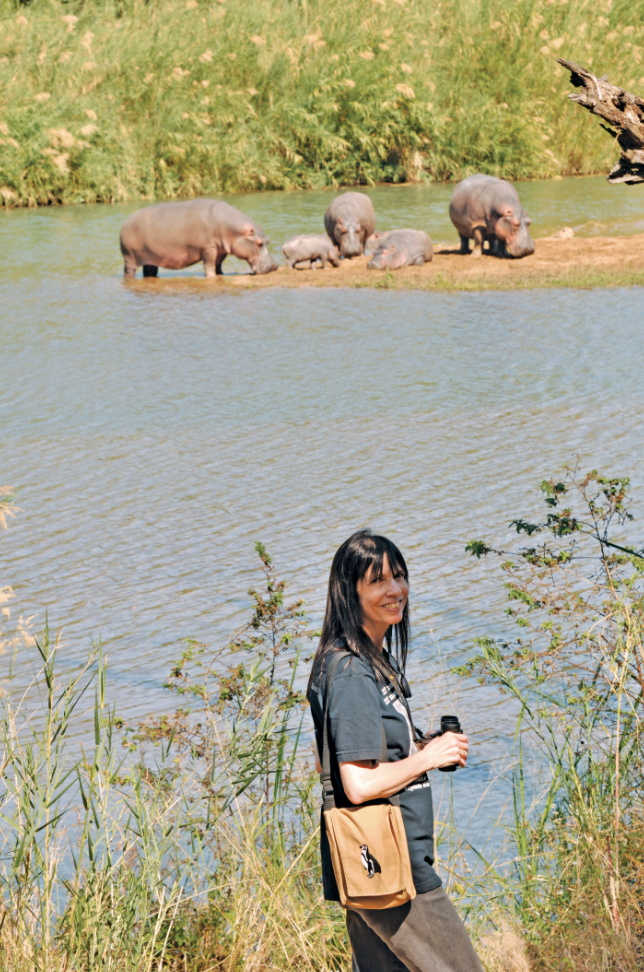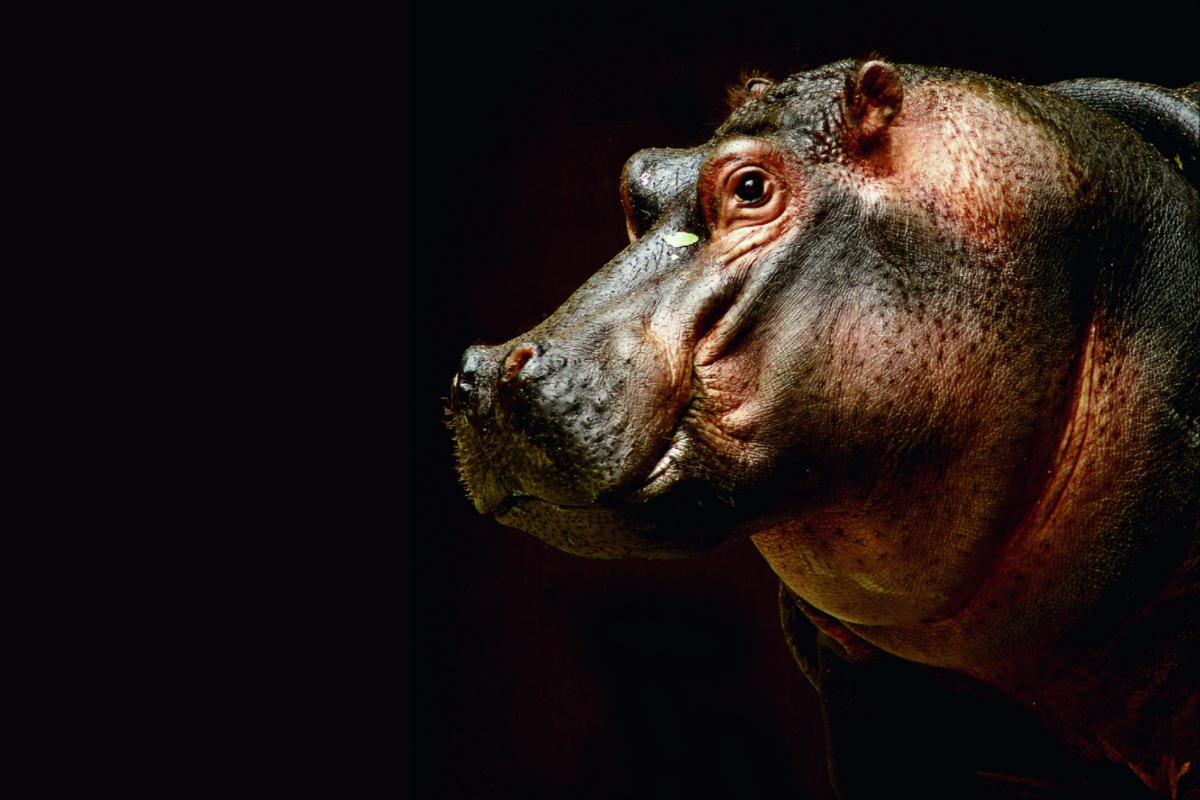By Teresa D’Amico
I first volunteered at the Turgwe Hippo Trust in Zimbabwe in June of 2012. As someone who craved the experience of what it is like to live among wild animals in the bush, this was it. If you feel calm around the animals, they will fascinate and delight you to no end. And if you are a dedicated animal advocate as I am, this is direct action at its finest.
I still remember sleeping deeply the first night in my cabin overlooking the Turgwe River, awaking to absolute serenity. The walls are open to the elements, covered with mesh to keep out the animals, so you are basically living outdoors. The healing effect of the place, on both the body and the mind, has led me to return four times over the past 10 years.
Karen Paolillo, a former photographic safari guide and her husband, Jean-Roger Paolillo, a geologist, founded the Turgwe Hippo Trust after the hippos’ lives were threatened during a horrendous drought in the south east Lowveld of Zimbabwe from 1991-92. The hippos’ river, the Turgwe, completely dried up.

The Paolillos were camping above the river at the time, and sought advice on how to feed in-situ the last remaining Turgwe hippos. Not only did Karen supply every night nearly one ton of food to the hippos and other animals that came to her feeding station, but she and her husband designed a large cemented water pan that would allow the hippos to live in and submerge.
So successful was her feeding program that she kept alive the last 13 hippos left in the Turgwe River, and two of the females actually conceived during that period. Over 65 hippos have been born since.
And the Paolillos have watched them all grow and flourish—they purchased the tiny plot of land on which their camp stood and built a home there.
A dream come true
Living among the baboons and monkeys, observing the hippos’ lives undisturbed in their habitat — this is the rare experience provided when you volunteer, and was truly a dream come true for me. During my trips to the Turgwe, I have had the added privilege to spend hours observing rare wild painted dogs and their pups at their dens; have had numerous close encounters with majestic elephants; observed vast herds of buffalo; had to wait for lions to move out of the road so we could continue our drive; and have woken up to kudus peeking in the window.
But of course there is a dark side to all this beauty in the form of human cruelty and greed. Karen and Jean-Roger, along with their dedicated rangers, carry out daily anti-poaching patrols and have found and removed countless wire snares over the years that would have horribly and indiscriminately wounded or killed hundreds of animals. The rangers are of course excellent trackers, which has led to the arrests of known poachers and thieves.
Naturally all this dedication and tireless work takes money. Costs include daily fuel for a generator and the Trust’s crucial vehicles, which are often in need of repairs – they are hours from any town. There’s also the rangers salaries, and sometimes it is necessary to hire local people for extra projects.
Due to extended drought conditions, sometimes the hippos and other local wildlife need supplemental feeding, so truckloads of hay and horse cubes and other feed is brought in. Donations provided by the volunteers who visit each year all go to these expenses and more.

Planning your trip
The Hippo Trust, which welcomes people from April through September, is located within the Save Valley Conservancy, the largest wildlife conservancy in southern Africa. The Conservancy comprises 750,000 acres of diverse wildlife habitat. It is home to elephant, hippo, rhino, buffalo, lion and leopard and other species including many different species of antelopes and the endangered painted wild dogs.
If you are up to this unique experience, you will have to get yourself to Harare Airport and you will be taken care of upon your arrival. If you are unable to make the journey please consider a generous donation to the Trust, or an annual adoption of one of the many hippos which can be found on the website, www.savethehippos.info.
I can still hear the hippo grunts in the nights. I can still hear the baboons and vervet monkeys running along the roof of the cottage and calling out as the days dawned. And I will forever be humbled by the gift of looking into their eyes and souls and observing their sheer pleasure in living.
Shame on humans for thinking we are the only living beings who matter. But thanks to people such as the Paolillos who believe otherwise, and thanks to organizations such as Friends of Animals, there is hope that we and the animals will survive for generations to come.

